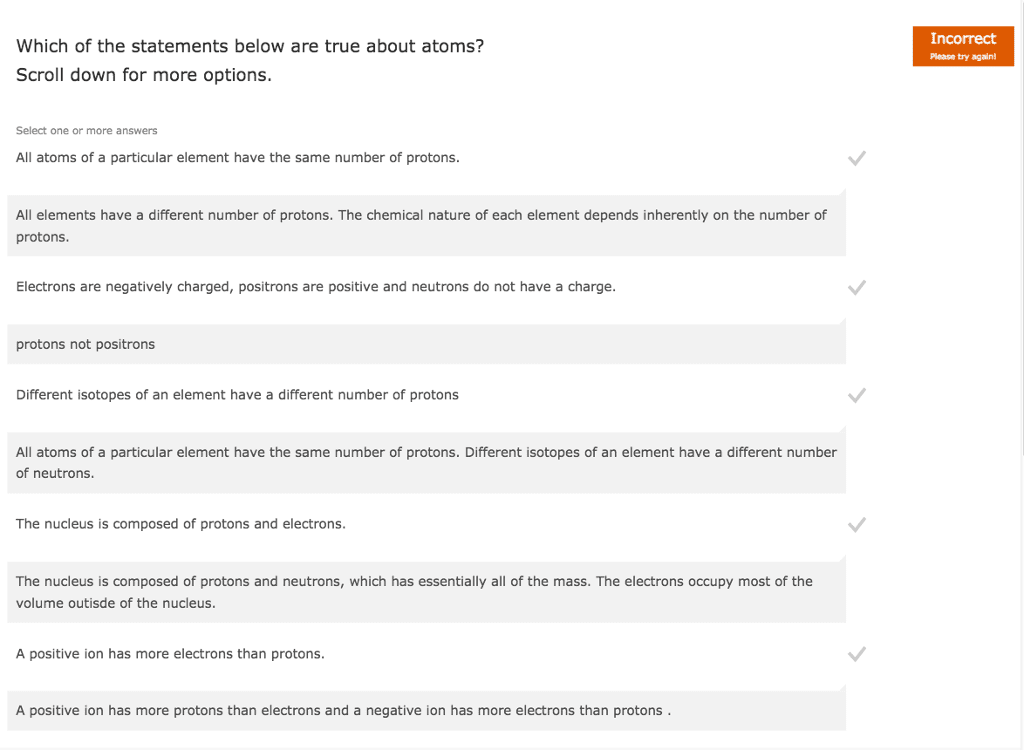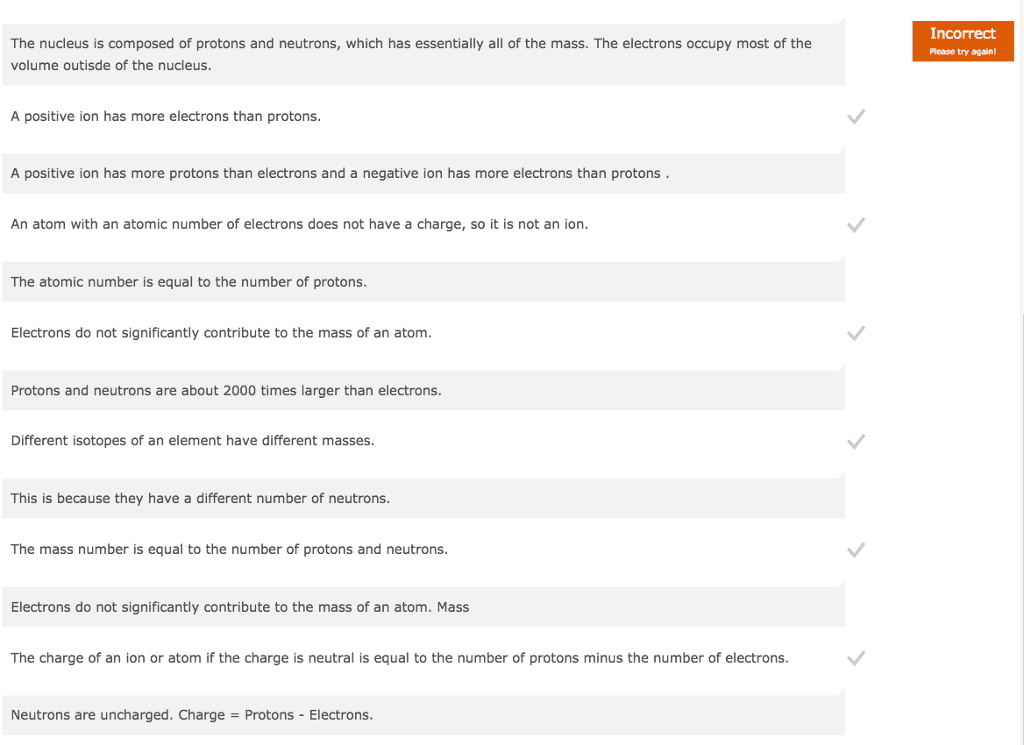CHEM 1040 Chapter Notes - Chapter 2: Nuclide, Nucleon, Mass Number
Document Summary
The nucleus of an atom is composed of protons and neutrons. An important property of the nucleus is its" positive electric charge. Hydrogen nuclei are now known as protons. Proton: a nuclear particle having a proton charge equal in magnitude to the charge of the. From experiments, research shows that each element has a unique nuclear charge electron and mass more than 1800 times that of the electron. Atomic number (z): the number of protons in the nucleus of an atom. Element: a substance whose atoms all have the same atomic number. An atoms atomic number (protons) is equal to its number of electrons: the aluminum atom contains 13 protons and 14 neutrons; the charge on the nucleus is +13 and the number of electrons is 13. Mass number (a): the total number of protons and neutrons in a nucleus: ex: the nucleus of sodium has an atomic number of 11 and a mass number of 23 (11+12)




